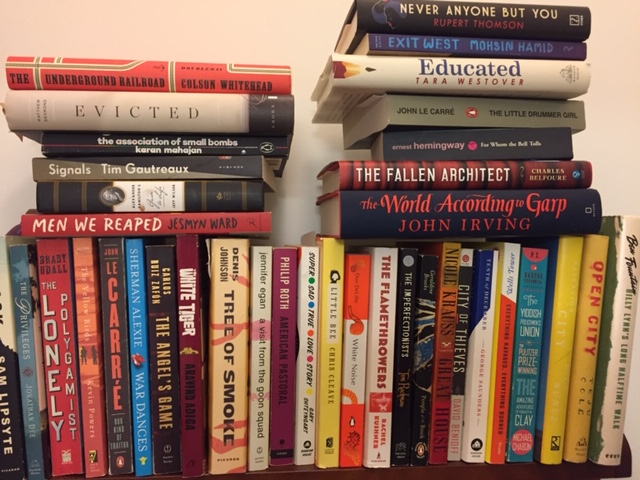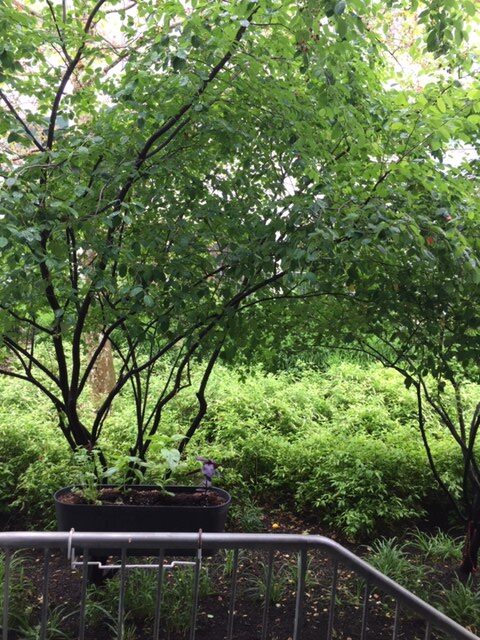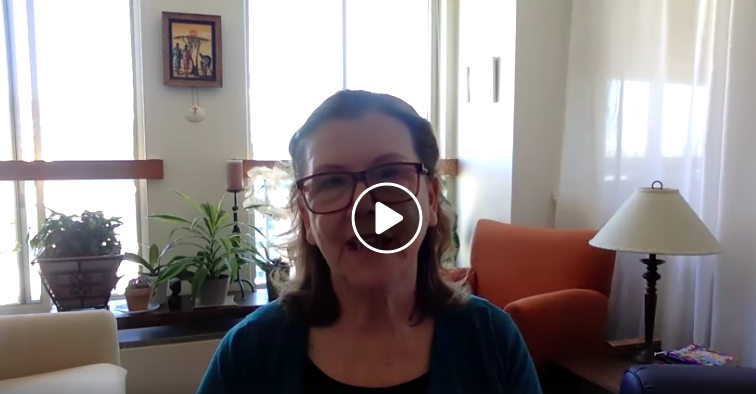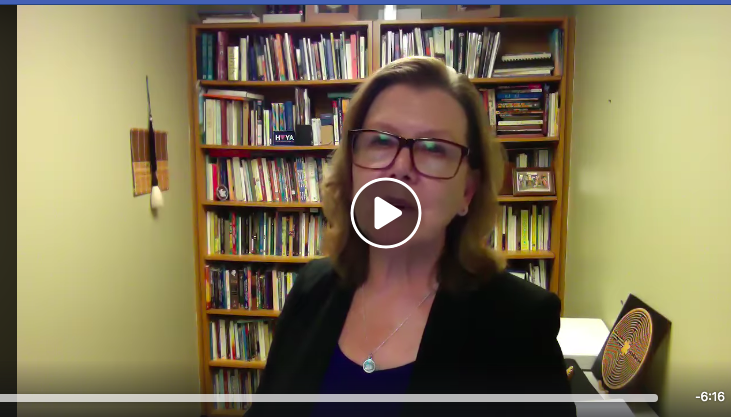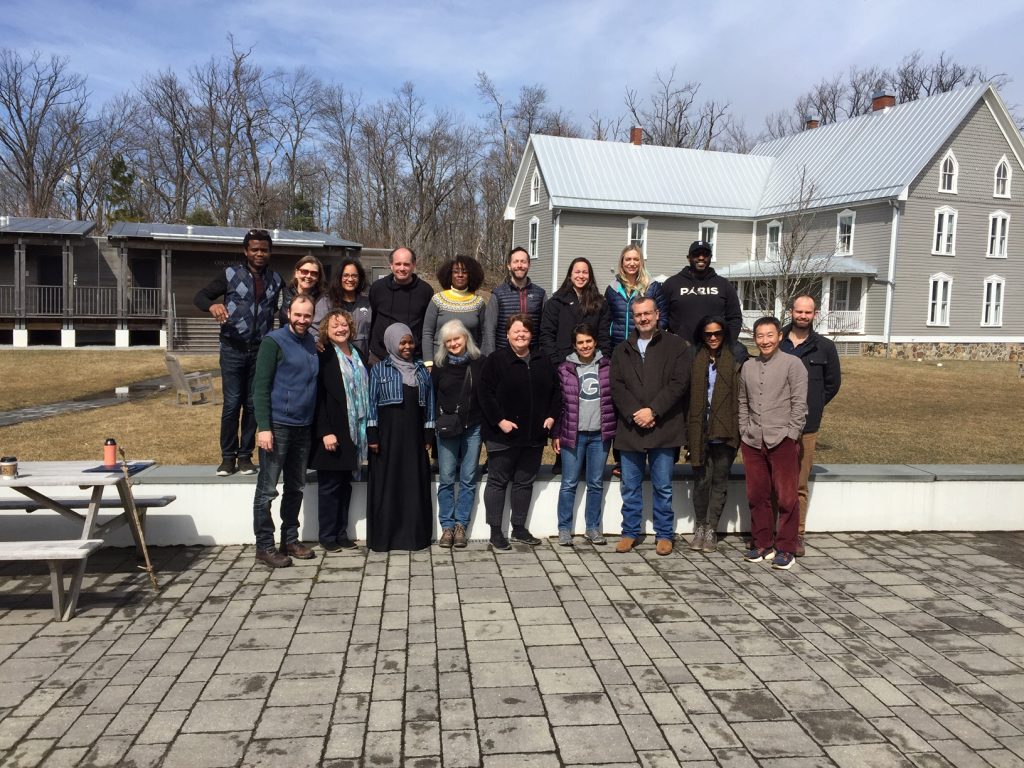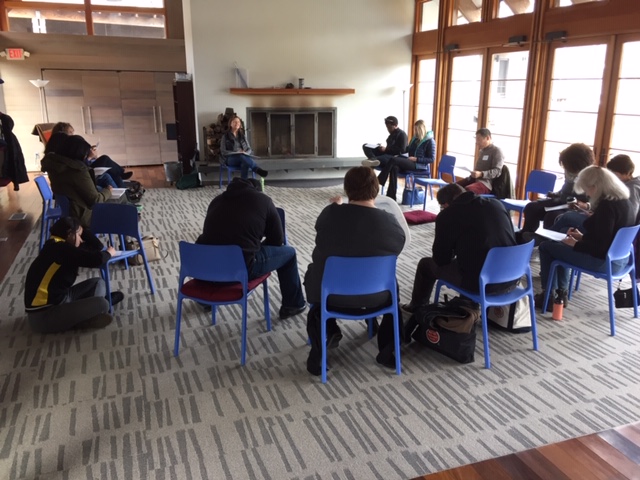George Floyd cried out for breath as his innocent life was extinguished. His death by the knee of a white police officer shines a light on the persisting evil of racism in America. A global movement spurred by Floyd’s murder, and the murders of Breonna Taylor and Ahmaud Arbery, among many others, has raised greater consciousness about systemic racism in the United States and the potential for sustaining meaningful social and political action to dismantle unjust racist structures. Countless other Black lives have also been lost in recent years to police violence but have not led to a national movement rising up like the one we are witnessing today.
The energy for social change on display in this moment is a reason for hope but I must also acknowledge that racial violence, and the conscious and the unconscious ways that racism and anti-Blackness manifest in daily life, is a reality that white people like me have the privilege to ignore or choose not to see. And as a white Catholic, I also have to acknowledge the ways that my church has too often been silent when issues of racial justice demanded action, not only in our sacred spaces but also in our society.
After a week of listening to my colleagues, I can affirm that feelings of loss, anger, and vulnerability are pervasive in our community. In the midst of such acute hopelessness, fragility, and despair, what do our mission and ministry resources offer us as we attempt to honor the cries for justice following the brutal murders of Floyd, Abery, and Taylor? How do we move forward in a shared struggle toward reconciliation of our racist divisions? And for white persons like me, who desire to be in solidarity with my Black sisters and brothers, what is necessary to understand about the white privilege that makes it possible for these tragic manifestations of racist violence to continue?
Our religious traditions, a pluralism that we honor and celebrate at Georgetown, have attempted to fill the temptation to overwhelming despair with their prophetic wisdom. Imam Yahya Hendi, Director for Muslim Life at Georgetown, in a reflection entitled “Demanding Justice for George Floyd and Taking a Stand Against Racism,” offers this: “All forms of racism must be rejected. Racism is a sin against God. Racism is a sin against humanity. Racism is a pandemic and disease that we all have to fight.” Reverend Ebony Grisom, Protestant Chaplain at Georgetown, reflects that “our collective conscious knows that the witnesses are too numerous to name, even as we hold their names and stories in our hearts … We cannot look away, nor can we ‘un-see’ what we saw this week.” And Rabbi Rachel Gardner, Director for Jewish Life at Georgetown, offers that “social justice is an inherently Jewish value and the recent murders of Breonna Taylor, Ahmaud Arbery, and George Floyd at the hands of police, as well as many other Black folx who have lost their lives to police brutality, necessitate us to act on our Jewish values.”
The Chaplains and Staff of Campus Ministry issued a statement on “Our Response to Racism and Racial Justice: “We lament that all of our traditions have at one time or another throughout history been complicit in raising up some at the expense of others. We who bear the privileges of these systems must reflect on our participation and root out the seeds of racism from our communities. Otherwise, these tragic patterns will persist.”
Prayerful reflections and statements of solidarity also flowed this week from our Catholic and Jesuit communities. In his Pentecost Sunday homily, Fr. Mark Bosco, Vice President for Mission and Ministry at Georgetown, links the breath of the Holy Spirit giving life to the apostles with the breath denied to George Floyd: “What about the Spirit speaks to us today? . . . The terrible sin of racism that literally took George Floyd’s breath away…We long for a Spirit that advocates, counsels, and comforts.”
In a written reflection, the Jesuit Patrick Saint-Jean shares out of his experience as a Black person in this country: “Blacks are constantly begging for oxygen, a gift that God granted everyone. Centuries of systemic racism, such as redlining and gerrymandering, have rendered a long litany of resources unavailable to the Black community. Air should be added to the list. It is hard for Black people to have to ask for their humanity to be recognized while also asking for breath.” And the Association of Jesuit Colleges and Universities issued a statement on racial violence:
“For more than 200 years, our nation’s Jesuit colleges, universities, high schools, and middle schools have taken the slow and deliberate path of educating students for thoughtful, moral citizenship. Our efforts have been well-intended, yet imperfect. Today, the killings of George Floyd and so many others challenge us to act against the overt and unrecognized racism that lurks in the American community and in the recesses of our own hearts. As our Jesuit mission calls us to do, let us use our collective voices as a lever for justice and the common good. We call upon our students, alumni, faculty, and staff to take concrete steps to make a difference in our own institutions and in our nation.“
All of these statements and reflections caught my attention this week, but perhaps none challenged my conscience, my self-understanding, and my desire to act justly more strongly than this article, “The Assumptions of White Privilege and What We Can Do About It,” by Fr. Bryan Massingale, a priest and theologian at Fordham University. Fr. Massingale, an outspoken advocate for racial justice in the Catholic Church, explores the uncomfortable truths about white privilege from his experience as a Black man in a religious tradition in the U.S. that has too often oppressed marginalized persons instead of lifting them up. Massingale offers this definition of white privilege, or white supremacy, in this way:
“White supremacy fundamentally is the assumption that this country, its political institutions, its cultural heritage, its social policies and its public spaces belong to white people in a way that they do not belong to others. It is the basic assumption that some naturally belong in our public and cultural space and others have to justify being there. Further, it is the suspicion that those ‘others’ are in ‘our’ space only because someone has made special allowances for them.”
Massingale goes on to identify five things that white people need to know and need to do if they desire to be in true solidarity with people of color:
- First, understand the difference between being uncomfortable and being threatened;
- Second, sit in the discomfort that this hard truth brings: systemic racism benefits white people;
- Third, admit your ignorance and do something about it;
- Fourth, have the courage to confront your family and friends; and
- Fifth, have an unconditional commitment to life that includes challenging unjust social policies and working against attitudes that cloak support for racism.
Fr. Massingale’s recommendations challenged me and made me uncomfortable in a way that I did not expect—understanding and exploring my own privilege and complicity is not easy work. And while I am tempted to forego any meaningful action for racial justice because the work seems too difficult, I know that real solidarity depends on taking the risk of growing in greater awareness about how people of color experience the world and moving from an awareness to loving action born of my own interior freedom. As President DeGioia mentioned in his statement from last week, we must remember that the process of dismantling injustice and inequality begins in the interior:
“Individually, in each of our own interiority, we must determine how we contribute to perpetuating injustice and sustaining structures that cannot continue and that now must be reimagined. And, for us in our shared membership in this Georgetown University community, it remains for us in the Academy to contribute to this work of reimagining the social, political, economic and moral structures to ensure justice for all—and especially for those for whom it has been too long denied.”
For resources from Georgetown’s Center for Social Justice organized by racial identities and groups for responding now, please see here.
To receive regular newsletters from Georgetown’s multi-faith religious chaplaincies, please sign up here.

